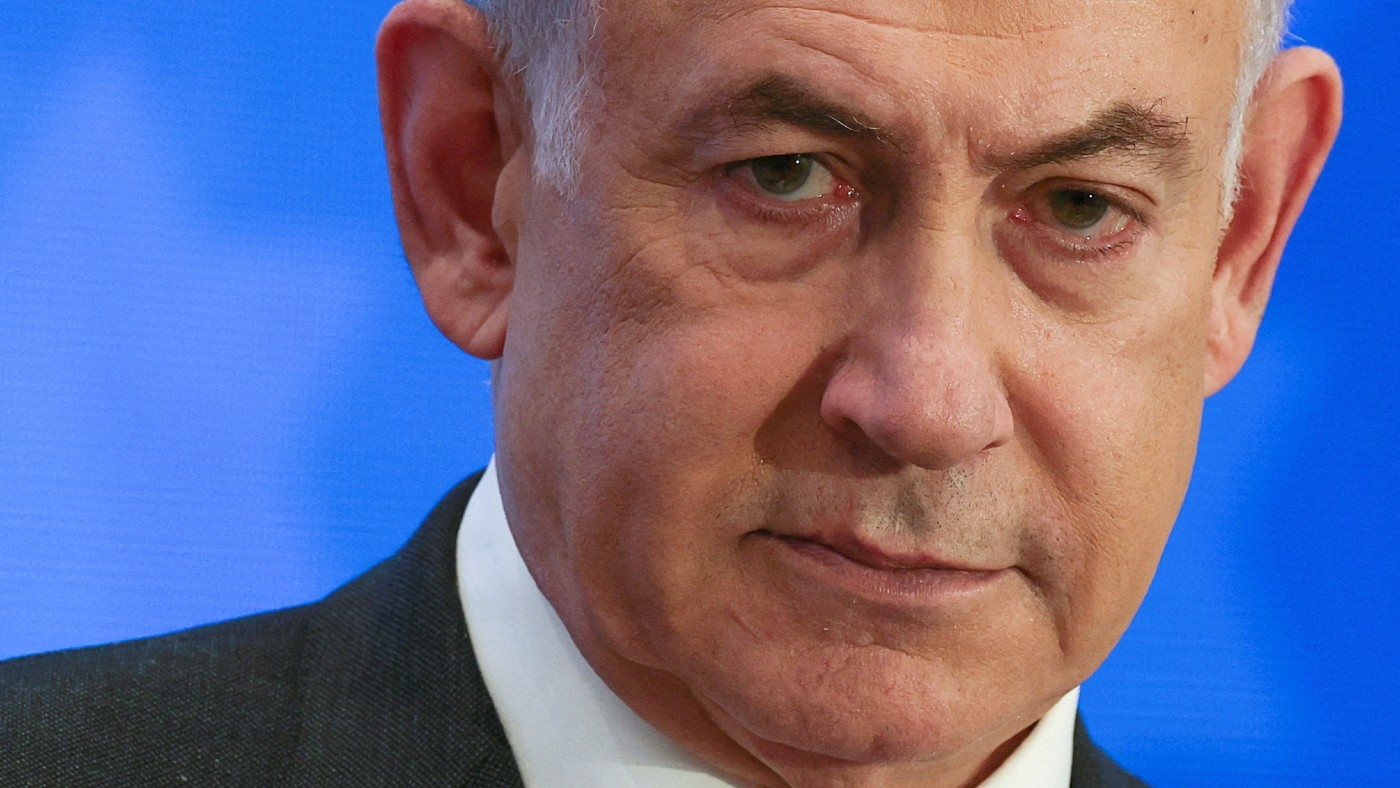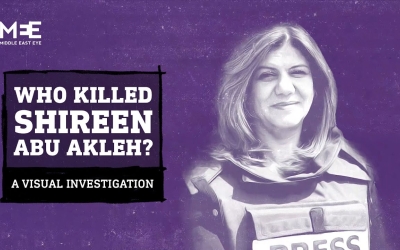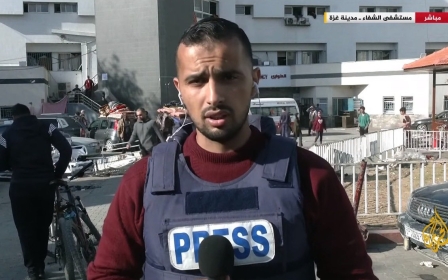Al Jazeera accuses Netanyahu of 'frantic campaign' after parliament bill

Al Jazeera has accused Israeli Prime Minister Benjamin Netanyahu of continuing a “frantic campaign” against it, after Israel’s parliament approved a bill on Monday allowing the temporary closure of foreign broadcasters, including the Qatari-owned network.
In a tweet heralding the move, Netanyahu said that Al Jazeera had “harmed Israel’s security, actively participated in the 7 October massacre, and incited against IDF (Israeli) soldiers.”
“The terrorist channel Al Jazeera will no longer broadcast from Israel,” he wrote.
The law approved on Monday would allow Netanyahu and Israel’s security cabinet to shut Al Jazeera’s offices in Israel for 45 days, which could be renewed, and would stay in force until the end of July or until the end of major military operations in Gaza, Reuters reported.
New MEE newsletter: Jerusalem Dispatch
Sign up to get the latest insights and analysis on Israel-Palestine, alongside Turkey Unpacked and other MEE newsletters
Responding on Monday night, Al Jazeera called the developments an “escalating move” and condemned Netanyahu’s statements as “nothing but a dangerous ludicrous lie”.
“Netanyahu could not find any justifications to offer the world for his ongoing attacks on Al Jazeera and Press Freedom except to present new lies and inflammatory slanders against the Network and the rights of its employees,” the network said in a statement.
“Al Jazeera holds the Israeli Prime Minister responsible for the safety of its staff and Network premises around the world, following his incitement and this false accusation in a disgraceful manner.”
The broadcaster said the bill passed in the Knesset, Israel’s parliament, was “part of a series of systematic Israeli attacks to silence Al Jazeera”.
It said that the attacks included the assassination of its veteran correspondent Shireen Abu Akleh, who was shot by an Israeli sniper on 11 May 2022, and the death following Israeli air strikes of Al Jazeera journalists Samer Abu Daqqa and Hamza al-Dahdouh, the son of the network's Gaza bureau chief, Wael al-Dahdouh.
Al Jazeera also highlighted "the bombing of its office in Gaza, the deliberate targeting of a number of Al Jazeera journalists and their family members and the arrest and intimidation of its correspondents in the field”.
Alongside Netanyahu, Israeli Communications Minister Shlomo Karai accused Al Jazeera of inciting against Israel.
“It is impossible to tolerate a media outlet, with press credentials from the government press office and with offices in Israel, acting from within against us, certainly in wartime,” he said of Al Jazeera's presence in Israel.
Al Jazeera journalists have been covering the war in Gaza from the ground since it started on 7 October, following the Hamas-led attacks on Israel.
While Israeli officials have long complained about the network’s coverage, Reuters reported that they have stopped short of acting, mindful of Qatar’s bankrolling of Palestinian projects in Gaza, which is seen by all sides as a means of staving off conflict.
Qatar established Al Jazeera in 1996. In January, Netanyahu publicly called for the Qataris to be pressed into applying more pressure on Hamas. The Palestinian movement’s political office is based in Qatar’s capital, Doha, which is also home to several top Hamas officials.
The United States has expressed mild concern at the prospect of foreign media groups being shut down in Israel. “If it is true, a move like this is concerning,” White House Press Secretary Karine Jean-Pierre told reporters at a briefing.
Avi Hyman, an Israeli government spokesperson, said Al Jazeera had been “spouting propaganda for many, many years” when asked if the latest move against the network was part of a plan to put more pressure on Doha.
Middle East Eye delivers independent and unrivalled coverage and analysis of the Middle East, North Africa and beyond. To learn more about republishing this content and the associated fees, please fill out this form. More about MEE can be found here.





